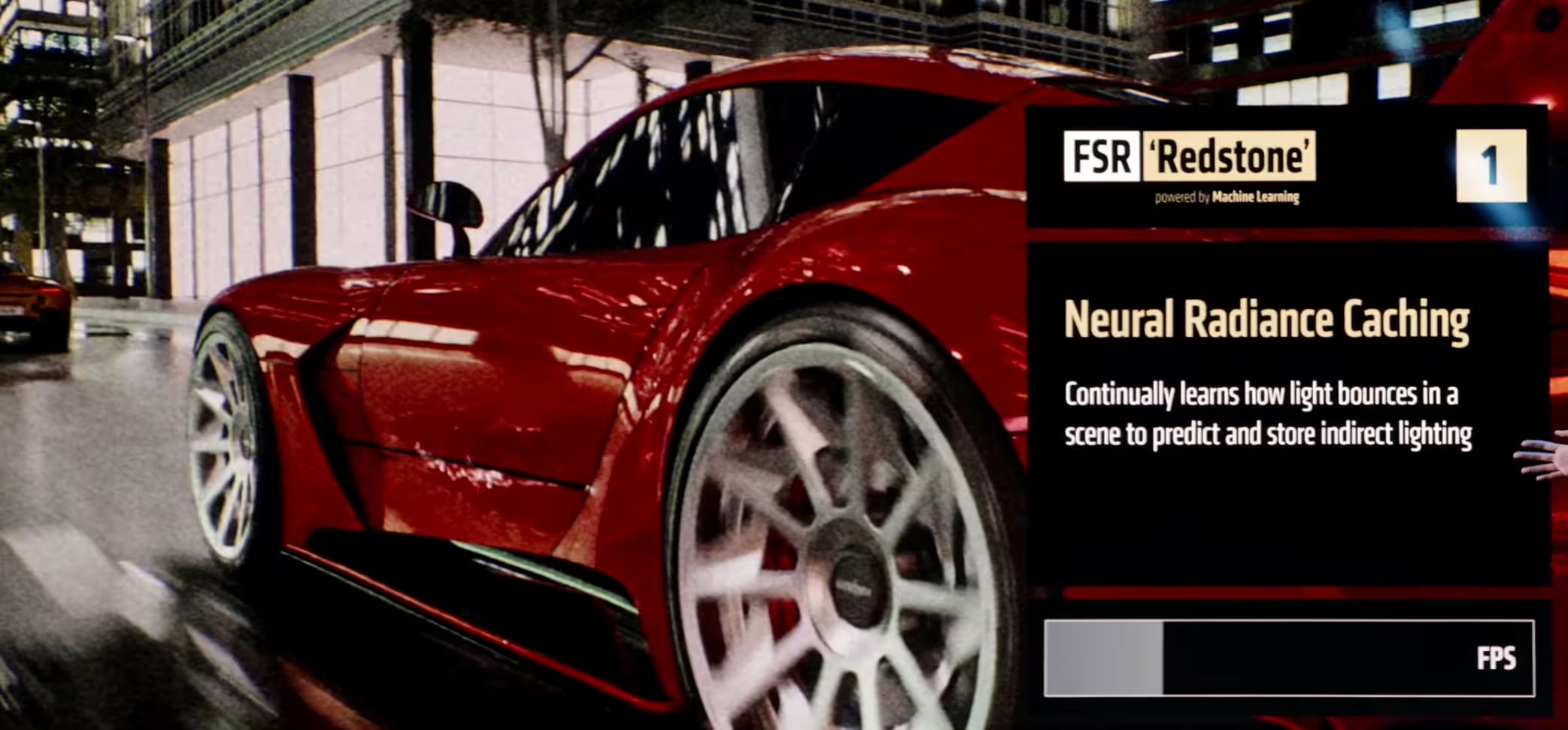2 Minutes
Introduction to AMD's FSR Redstone
At Computex 2025, AMD introduced its latest advancement in graphics technology: FidelityFX Super Resolution (FSR) Redstone. Building upon the foundation laid by FSR 4 and the Radeon RX 9070 series GPUs, FSR Redstone represents a significant evolution in image upscaling and frame generation, leveraging cutting-edge artificial intelligence techniques.
Key Features of FSR Redstone
FSR Redstone is built around three pivotal AI-driven capabilities:
- Neural Radiance Caching: This machine learning-based feature predicts the behavior of indirect lighting, reducing the need for full path tracing and thereby enhancing rendering efficiency.
- Ray Regeneration: Similar to NVIDIA's DLSS 3.5, this algorithm intelligently simplifies ray-traced scenes. By utilizing AI, it delivers detailed visuals with reduced computational overhead.
- Machine Learning-Accelerated Frame Generation: AMD employs machine learning to generate intermediary frames between actual frames, resulting in smoother visual experiences. This approach mirrors NVIDIA's DLSS Frame Generation but is tailored to AMD's unique architecture.

Exclusive Compatibility with RDNA 4 Architecture
AMD has explicitly stated that FSR Redstone is designed exclusively for GPUs based on the RDNA 4 architecture. Jack Huynh, a senior executive at AMD, emphasized, "FSR Redstone will be a game-changer for RDNA 4 users." Notably, there has been no mention of support for previous architectures like RDNA 3 or RDNA 2, which may disappoint a segment of AMD's user base.
Release Timeline and Game Support
FSR Redstone is slated for release in the latter half of 2025, with an exact date yet to be announced. By June 5, 2025, approximately 60 games are expected to support FSR 4. However, during the Computex presentation, AMD did not discuss extending FSR 4 support to GPUs predating RDNA 4.
Conclusion
With the unveiling of FSR Redstone, AMD has taken a significant step in integrating AI-driven technologies into its graphics solutions, positioning itself as a formidable competitor to NVIDIA's AI-based offerings. This development underscores the growing importance of machine learning and intelligent algorithms in shaping the future of computer gaming.


Comments